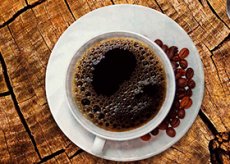New publications
Postoperative pain can be managed without medication
Last reviewed: 02.07.2025

All iLive content is medically reviewed or fact checked to ensure as much factual accuracy as possible.
We have strict sourcing guidelines and only link to reputable media sites, academic research institutions and, whenever possible, medically peer reviewed studies. Note that the numbers in parentheses ([1], [2], etc.) are clickable links to these studies.
If you feel that any of our content is inaccurate, out-of-date, or otherwise questionable, please select it and press Ctrl + Enter.

Quality rest can restore a person's strength, provide physical and mental comfort. After all, everyone knows that healthy and full sleep reduces the risk of developing cardiovascular diseases, metabolic diseases and nervous system diseases.
A new study has found that only two available factors can ease the condition of a patient who has undergone surgery: a good night's sleep or a cup of coffee will relieve pain.
"Pain of varying intensity after surgery can become a serious problem. Scientists have long been studying the connection between pain and quality sleep - and this connection really exists," says Professor Giancarlo Vanini, an anesthesiologist at the Michigan Clinic, USA.
As the professor explains, previous studies have already demonstrated evidence that sleep disorders lead to increased postoperative pain. Moreover, if the operated patient does not have adequate sleep, the pain after the operation becomes protracted. Scientists could not tell about the mechanisms of such a relationship.
Professor Vanini focused his attention on studying the effect of periodic sleep deprivation on the presence of postoperative pain in rodents. It was found that sleep deficiency makes the pain more intense and prolongs the rehabilitation period.
"To reduce the impact of sleep disturbance on the presence of pain, we started looking for life-saving medications, and settled on an unconventional solution - we used stimulants," the doctor said.
Few people would think of using stimulants to alleviate the condition of people who already have problems with sleep. However, in this case, the decision turned out to be correct.
"Coffee and caffeinated drinks inhibit the action of adenosine in the brain structures. Since adenosine induces the effect of sleep, then after consuming caffeine, a person becomes more alert. We liked this effect, especially since caffeine is an accessible and popular remedy," the professor says.
After performing surgery on rodents, the researchers came to the conclusion that caffeine limits the natural increase in pain associated with sleep deficiency. "Can this effect be explained? After blocking adenosine in the anterior hypothalamus, we protected its effect on pain-sensitive zones. As a result, the rodents, tired from lack of sleep, began to suffer less from pain, and the recovery process was accelerated,” the scientists explain. It is also interesting that the effect obtained has no connection with the analgesic effect of caffeine. The essence is that caffeine makes neurochemical adjustments to the brain areas responsible for sleep and alertness, and these adjustments, for unknown reasons, are redirected to the pain sensitivity zones.
The results of the study allow doctors to think about creating new methods for getting rid of postoperative pain. This is especially important for patients who practically do not sleep before surgery and go to the operation already with an existing lack of sleep. According to Professor Vanini, additional sleep or a cup of coffee can come to the aid of such people - of course, if there are no contraindications to its use.
A more detailed description of the study is presented in the Oxford journal Sleep.

 [
[